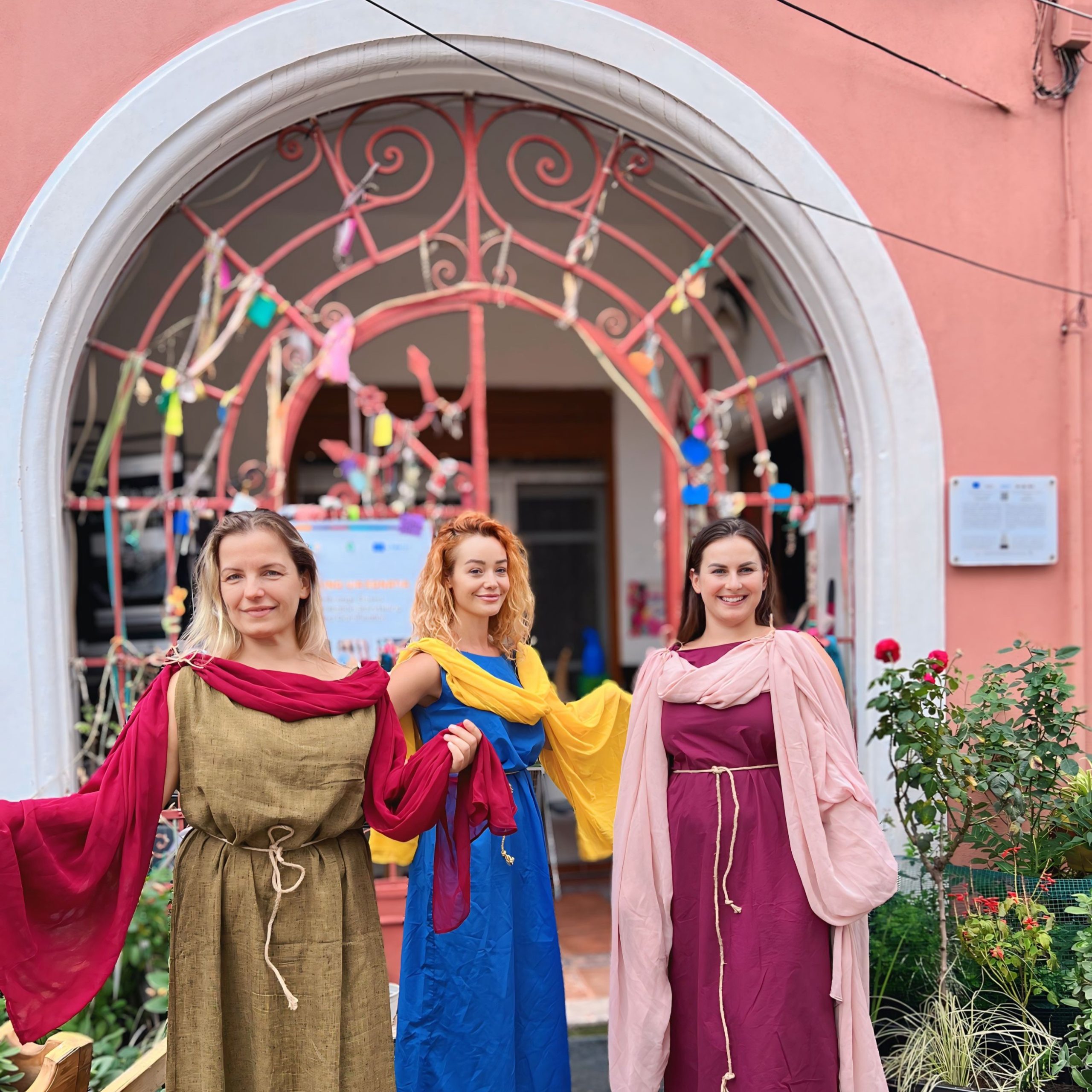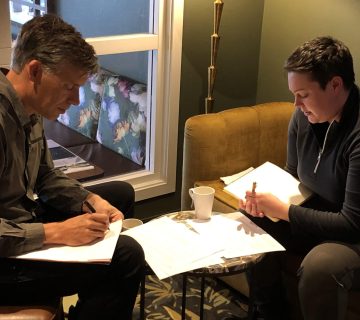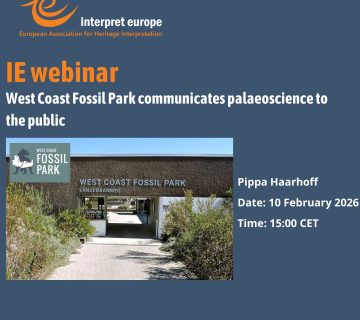An immersive exploration of heritage through storytelling and interactive techniques aimed at preserving the ancient European landscape.
From September 23-28, 2024, Durrës in Albania hosted a comprehensive training programme focused on heritage-based interpretation, storytelling, and gamification. Organised in partnership with MuZEH Lab, a nonprofit organisation and small museum located in the heart of Durrës’s historical district, this event welcomed participants from the heritage sector and local community to explore the rich local heritage, using the ancient Roman road, Via Egnatia, as a case study. The event was also a part of the European Heritage Days manifestation and was supported by Interpret Europe.
Designed by Vasilka Dimitrovska, the programme showed participants how value-based interpretation—a concept that Interpret Europe has been developing in partnership with UNESCO for meaningful interpretation at World Heritage Sites—can transform cultural and natural heritage sites into inclusive, participatory, and reflective spaces. The training introduced innovative practices in heritage interpretation, aiming to revitalise the Via Egnatia, which started in ancient Rome and stretches from Durrës (Albania) to Ohrid (North Macedonia), Thessaloniki (Greece), and ultimately to ancient Byzantium (modern-day Istanbul, Turkey). Rather than relying on traditional teaching methods, the programme employed interactive and engaging formats with lots of interactive exercises to actively involve participants in heritage interpretation.
The training emphasised the significance of the Via Egnatia while creating a new interpretive model applicable to local heritage. It included innovative techniques designed to enhance engagement and create meaningful, interactive, and enjoyable experiences for all participants and future visitors along this ancient road.
Floria Marini, owner of ‘Alex’ Travel Agency in Tirana and a dedicated travel agent trainer, shared her heartfelt gratitude for the training. She highlighted the significance of heritage interpretation for the tourism sector, noting that it benefits not only tourist guides but also travel agencies and professional training centres across Albania. Floria emphasised the new approaches and methods introduced during the training, which can enhance the way we serve tourists and foster greater interest in our beautiful country.
The project ‘Reviving Via Egnatia: Heritage-based interpretation, storytelling, and gamification’ was delivered by an individual grant awarded to Vasilka Dimitrovska, supported by UNESCO through Culture and Creativity for the Western Balkans (CC4WBS), a European Union-funded project aimed at fostering dialogue in the Western Balkans, encouraging the cultural and creative sectors to enhance their socio-economic impact.
Vasilka Dimitrovska is IE’s Country Coordinator North Macedonia and is an IE certified interpretive trainer. She is the director of HAEMUS – Center for Scientific Research and Promotion of Culture (www.haemus.org.mk), and the owner of Storytelling Skopje (www.storytelling-skopje.com). She can be contacted at: dimitrovska@haemus.org.mk.
Inesa Sulaj is one of the founders of MuZEH Lab (www.muzehlab.org.al), a nonprofit organisation and a small museum located in Durres, Albania. Inesa is a cultural heritage and museology consultant with expertise across the Balkans and Europe. She is IE’s office manager, supporting the organisation’s mission. She can be contacted at: inesa.sulaj@interpret-europe.net.
To cite this article: Dimitrovska, Vasilka & Sulaj, Inesa (2024) ‘Reviving Via Egnatia: Heritage-based interpretation, storytelling and gamification’ in Interpret Europe Newsletter 3-2024, pg.22.
Available online: PDF-Newsletter_2024_3.pdf




